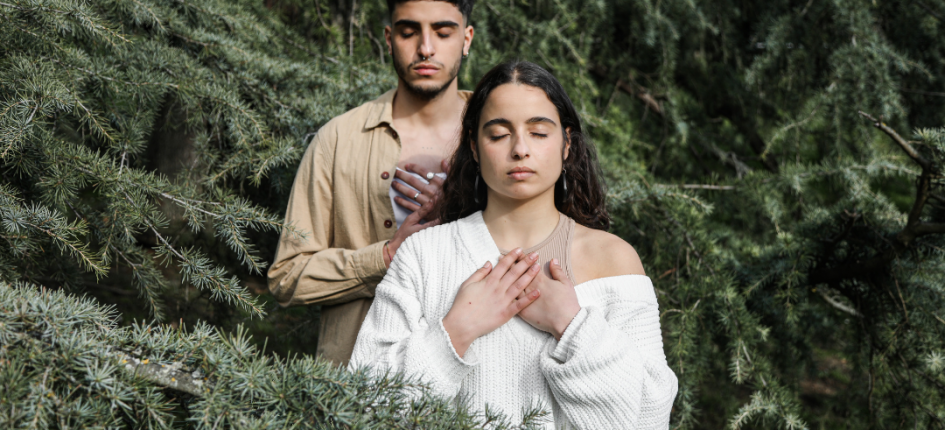- 510.701.0846
- Home
- Do You Have a Conscious Relationship? Here Are the Signs

Do You Have a Conscious Relationship? Here Are the Signs
You and your partner have gone to therapy. You’ve attended workshops. You make an effort to practice Imago dialogue. You’ve read about having a “conscious relationship” in Getting the Love You Want.
At this point, you’re probably wondering… is it working? Do we have a conscious relationship? How can you tell?
Since good relationships need to be functional and enjoyable — not perfect — you actually can consult a few landmarks to determine if yours is conscious.
Start by defining what a conscious relationship is.
Defining a Conscious Relationship
The focus of a conscious relationship differs somewhat from traditional relationship goals, although it can include them: staying married, having children, building a social network and home together.
Before committing to any of these, a conscious couple commits to individual growth within their bond.
This can throw off much of our romantic conditioning, because the goal is not to stay in the relationship at all costs. Instead, the outcome of the relationship often remains open and secondary to personal growth.
What you’ll often find is a sweet paradox, though: when you experience personal growth in a relationship, you want to stay.
If you see some of the following characteristics in your relationship, it’s likely you’re on the conscious relationship track.
Radical Responsibility
We’ll start here, because this is probably the most challenging aspect. It means taking responsibility for all your feelings, desires, and mental/emotional baggage… as yours.
Why is this hard? As a relationship progresses, it’s easy for responsibility to become muddied.
You’re annoying me.
I can’t stand it when we argue.
You didn’t remind me to eat! You know I get grumpy when I’m hungry.
Triggers especially can feel like personal attacks. Yet it’s well-known in Imago-land that even the most attractive partner will eventually trigger you.
In the conscious way to handle triggers, you would:
- Realize that you’re becoming reactive in the moment
- Regulate your emotions through self-soothing and/or distress tolerance
- Once calm, make the connection between your past and the present situation
There are steps along the way, of course. Perhaps you can retroactively identify, apologize for reactivity, and explain. That’s worthwhile, mature, and conscious, too, because you’re making an effort to be self-aware.
Bottom-line: self-awareness goes a long, long way.
All Emotions Are Safe
Building on self-awareness, you may find yourself expressing sentiments that you’ve never expressed with other partners. A conscious relationship acts as a container for the full spectrum of human emotions.
So much easier said than done, of course. Do you want to hear your partner voice their fears about the relationship? When you listen to each other with empathy and patience, though, you’re giving each other a great gift.
A Balance Between Growth and Comfort
If you’re reading this, you probably make self-improvement a priority. And that’s great!
But beware a catch-22. When you constantly push for change in your relationship, the boat never stops rocking. It can start to feel nauseating.
And it can lead to a special kind of burn-out in which you and your partner regard yourselves as failures — just because you didn’t meet your own astronomical goals!
Like a satisfying blueberry pancake, a healthy relationship mixes the comfort zone and the growth zone. The short version? Days on the couch sharing chips and Netflix nourish your relationship, too.
Unconditional Love
You catch yourself genuinely putting your partner first. None of us are perfect, but we are all capable of expressing unconditional love sometimes.
The beauty in a conscious relationship is that love doesn’t come from a place of complete merging or losing our sense of self. Voluntary acts of service or willing words of affirmation feel different from that. You know unconditional love when you see it.
All this striving to own your subconscious fears, listen equitably, and create safety does pay off. The wellspring of nurtured love allows both you and your partner to float.